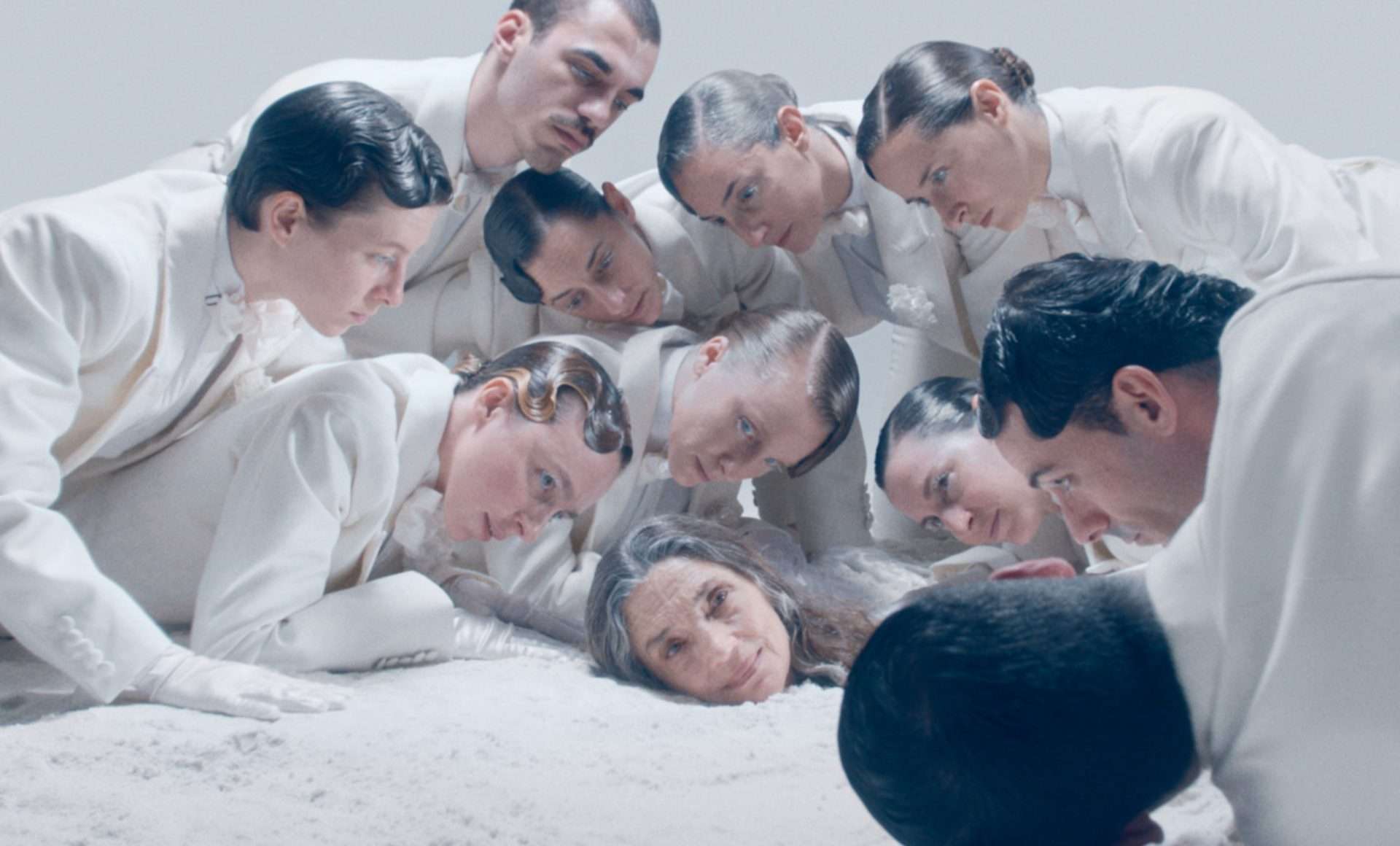Carlos Marqués-Marcet’s “They Will Be Dust” (Polvo Seran) brought me back the memories of last year’s gut-wrenching “The Eternal Memory.” The 2023 documentary followed the life of a Chilean journalist suffering from Alzheimer’s. His wife, an actress and an academic, stood by his side as he started losing parts of himself. The film explored the all-encompassing nature of death, its effect on the deceased’s loved ones, and the kin’s attempt at preserving the said person’s legacy. Marqués-Marcet explores something quite similar in his musical tragicomedy about two lovers who have been together for over four decades.
The film revolves around Claudia (Angela Molina) and her husband, Flavio (Alfredo Castro). Both have been skilled and revered dramatic professionals who spent their lives at the service of the art. The two remain at the mercy of their emotions since they guide them on an artistic path and lead to untapped creative territories. While in her 70s, Claudia learns that she is suffering from an incurable disease. However, as we all know, death doesn’t affect only the dying individual but those around them. So, Claudio’s diagnosis affects Flavio and their daughter, Violeta (Monica Almirall).
Claudia cannot accept this inescapable part of her life. Her drive for life or imbuing in those around her resists her from embracing the end. Besides, she dreads having no control over it. Flavio cannot see her leave and feels emotional seeing her gradually lose the parts that made her a vibrant presence. He loves her so passionately that he cannot bear the thought of living without her. Violeta has to tend to their emotional and other needs since her two siblings avoid these responsibilities. She has to bear the soul-crushing burden of the loss of her parents as a unit. Simultaneously, she has to be on board with their whimsy and be on the other side of the parenting table.
To find agency over her life’s aspects, Claudia makes a shocking decision. She decides to end her life rather than wait for an indefinite period and an unpredictable moment. So, her life remains her creation, and she is in charge of all its intricacies rather than the other way around. She and Flavio invite their family to their second marriage ceremony so that they can share the same news.

A joyous affair soon turns into a bittersweet last reunion. It results in further complications that highlight all their expectations or resignations. Some want to fight against this notion, considering it idiotic. Others claim no say in it, but you say something lurking under those words. That’s the beauty of Marqués-Marcet’s “They Will Be Dust.”
Despite its heightened theatrical garb, you sense something truthful underneath. Between its somber notes of naturalistic tragedy, the film presents elaborate dance sequences that convey its characters’ emotional state, more so, their intensity. These scenes are loud and full of dramatic shifts. They spurt out at any setting, whether a bus or a morgue and take us to otherworldly, imaginative places. Nevertheless, these hyper-expressive scenes convey insights about its characters and let us peek into their emotional journey.
While insights are not aplenty, they are sufficient. They make us ponder the matters of life and death and how we react to them. It leaves us thinking about the quantifying and non-quantifying aspects of love. Does love exist only when lovers exist in the same realm? Does it vanish when the lovers cannot be in each other’s company? Can one cherish love based on memories? If so, is one’s presence immaterial? While never spelling out any of it, the film leads us to consider these philosophical quandaries. Even with its characters’ supposed melodrama, it offers a window into their upheaval. So, its theatricality doesn’t feel like a distraction or a cop-out but solely a creative choice.
Ángela Molina, who starred in Luis Bunuel’s “That Obscure Object of Desire,” is as breathtaking as Claudia. She makes Claudia appear far more youthful and energetic than the youth. Through that, she makes Claudia’s embrace of life feel far more prominent with her thoughtful performance. Alfredo Castro embraces nuance in his evocative portrayal of Flavio. With Monica Almirall’s support besides theirs, the film turns into an immersive experience.





![Sagara Sangamam [1983] Review – Of art, life and death](https://79468c92.delivery.rocketcdn.me/wp-content/uploads/2018/05/download.png)
![Never Rarely Sometimes Always [2020] Review – A Quietly Heartbreaking Drama on Abortion Experience](https://79468c92.delivery.rocketcdn.me/wp-content/uploads/2020/04/Never-Rarely-Sometimes-Always-2020-768x332.jpg)
![The Pianist [2002] Review: A Poignant Commentary On the Horrors of the Holocaust](https://79468c92.delivery.rocketcdn.me/wp-content/uploads/2019/07/The-Pianist-highonfilms-768x417.jpg)